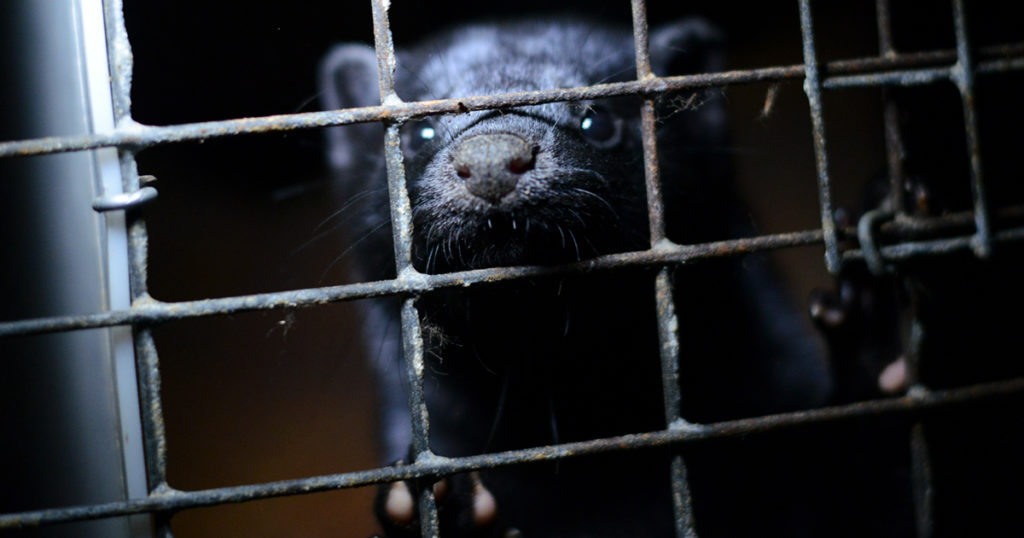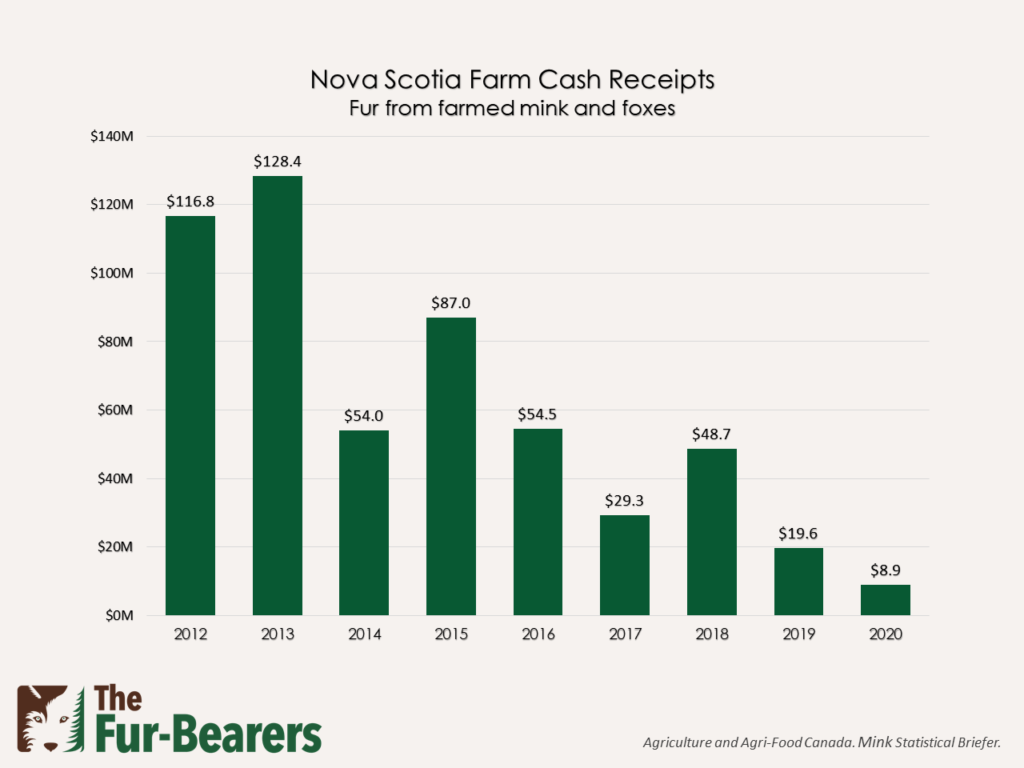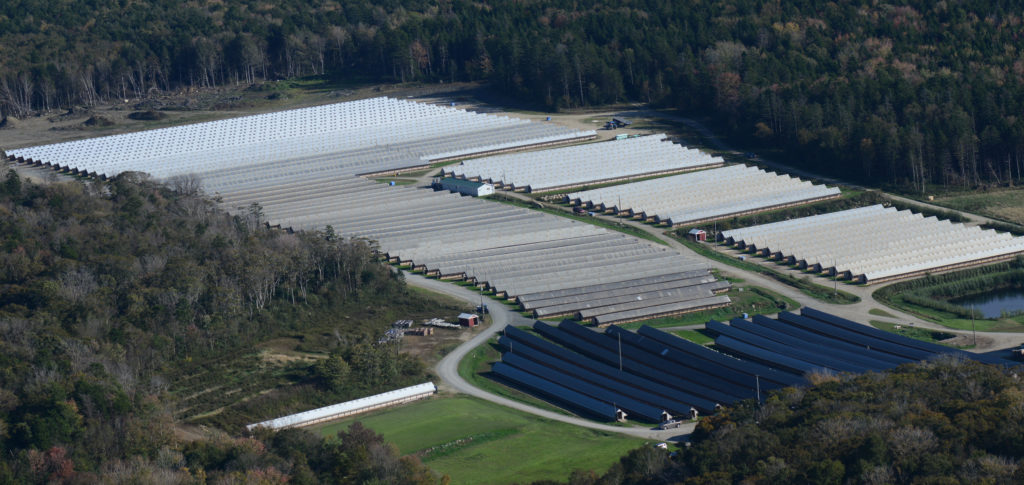
In an era when consumers, companies, and entire countries are rejecting fur, the Government of Nova Scotia is moving in the opposite direction: it’s funding the fur farm industry.
Under the Mink Industry Enhancement Program, the province is giving hundreds of thousands of dollars to the mink industry, in part to “strengthen the industry’s position in the market and create market access opportunities.” Recipients of the program receive $25 per breeding female mink, up to a maximum of $100,000. A November 2021 article from the Canadian Press revealed that $780,000 had been given to mink farmers already in 2021. To put this $25 figure into perspective, the average price of a mink pelt in 2020 was $26.
This is a shocking misuse of public funds to support a dying industry that has been shown to be a threat to public health, especially during a pandemic. In 2021, British Columbia’s Provincial Health Officer issued a moratorium on mink farming, writing that “mink farming is a health hazard as it is an activity which endangers or is likely to endanger public health”. A few months later, the BC government went further and announced a ban on mink farming due to the public health risks associated with COVID-19, becoming the first Canadian province to do so.
Fur farming has been in decline for years, and Nova Scotia’s mink industry is no exception. In 2020, the sector made less than $9 million in sales, yet it is still being bolstered by public funds. Without government support, fur farming isn’t economically viable.

Fur farming has been banned in numerous countries and a private member’s bill has recently been introduced to ban fur farming in Canada. The Government of Nova Scotia should heed the lesson of other jurisdictions and begin a phase-out of the mink farm sector, support workers to transition better opportunities, and close the farms permanently.
The Government of Nova Scotia needs to immediately suspend this program and end fur farming – for the sake of animals, the environment, for public health, and for the safety of the workers employed on these farms.
Fur farming is unsustainable, unethical, and dangerous – it exists solely to create luxury fashion products that no one needs. It’s time that Nova Scotia drop its support of this cruel practice.

TAKE ACTION
Residents of Nova Scotia, contact your MLA and express your concerns about fur farming in the province. Look up the contact details for your elected representative at nslegislature.ca/members/profiles. You can also contact Nova Scotia’s Minister of Agriculture, Greg Morrow at MIN_DAG@novascotia.ca.
Be respectful and polite when bringing up your concerns. Here are some points you can include:
- Under the province’s Mink Industry Enhancement Program, the government pays mink farmers $25 per breeding female mink up to a maximum of $100,000. This funding program needs to end.
- The Government of Nova Scotia needs to end all financial support of the fur farm industry and prohibit fur farming, investing in sustainable and ethical sectors instead.
- Mink farming is a public health risk as mink are susceptible to the SARS-CoV-2 virus. Transmission of the virus to mink can lead to the development of new variants of concern, this risk undermines Nova Scotia’s vaccination efforts.
- On Nova Scotia fur farms, wild animals like mink and foxes are kept in small wire cages unable to express any natural behaviours. This is a cruel practice that exists solely to create luxury fashion products that no one needs.
- Public money shouldn’t be going into a industry that threatens public health, is cruel to animals, and is environmentally harmful.
- Numerous countries around the world have banned fur farming. In 2021, British Columbia became the first province in Canada to ban mink farming.
